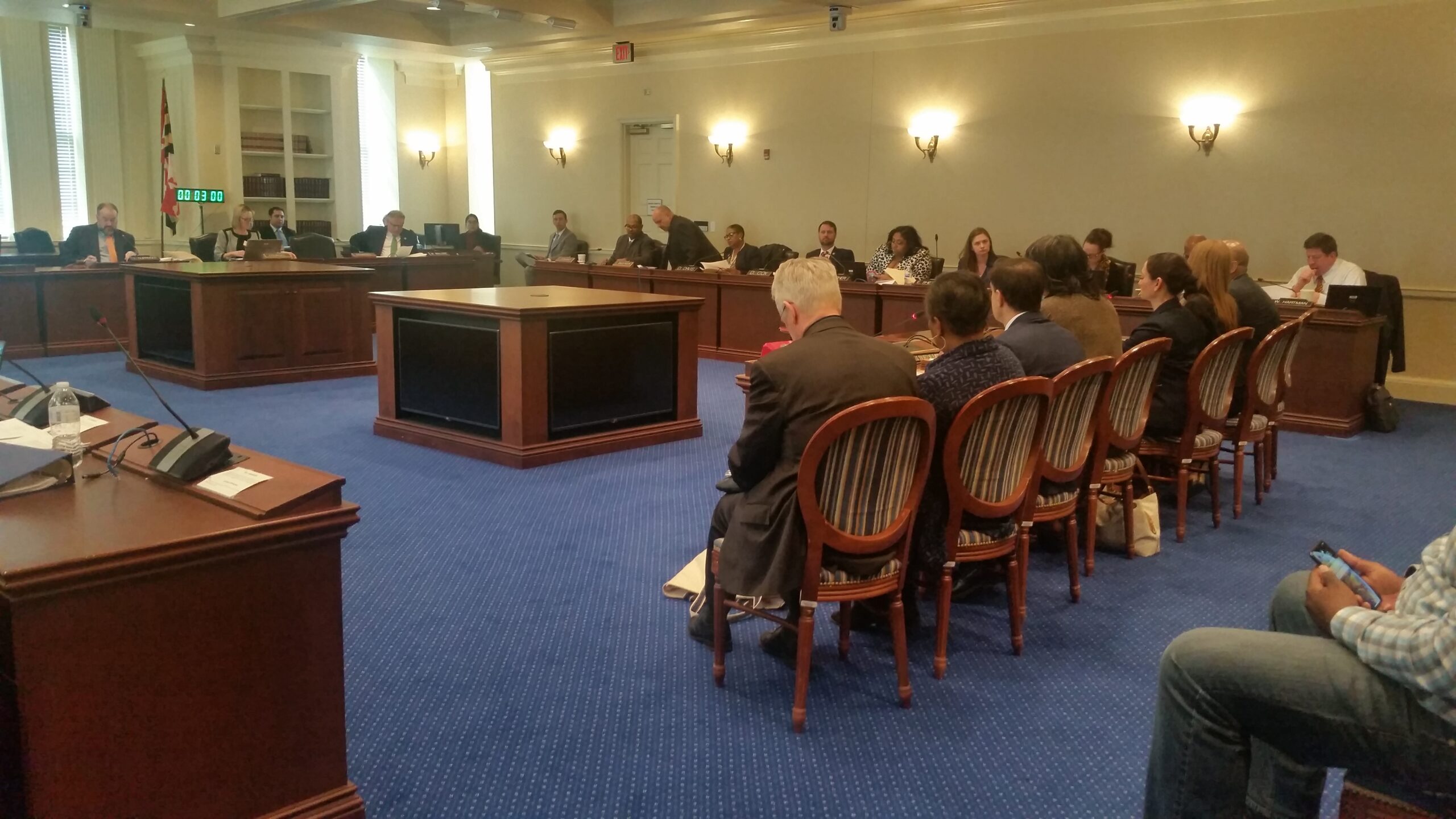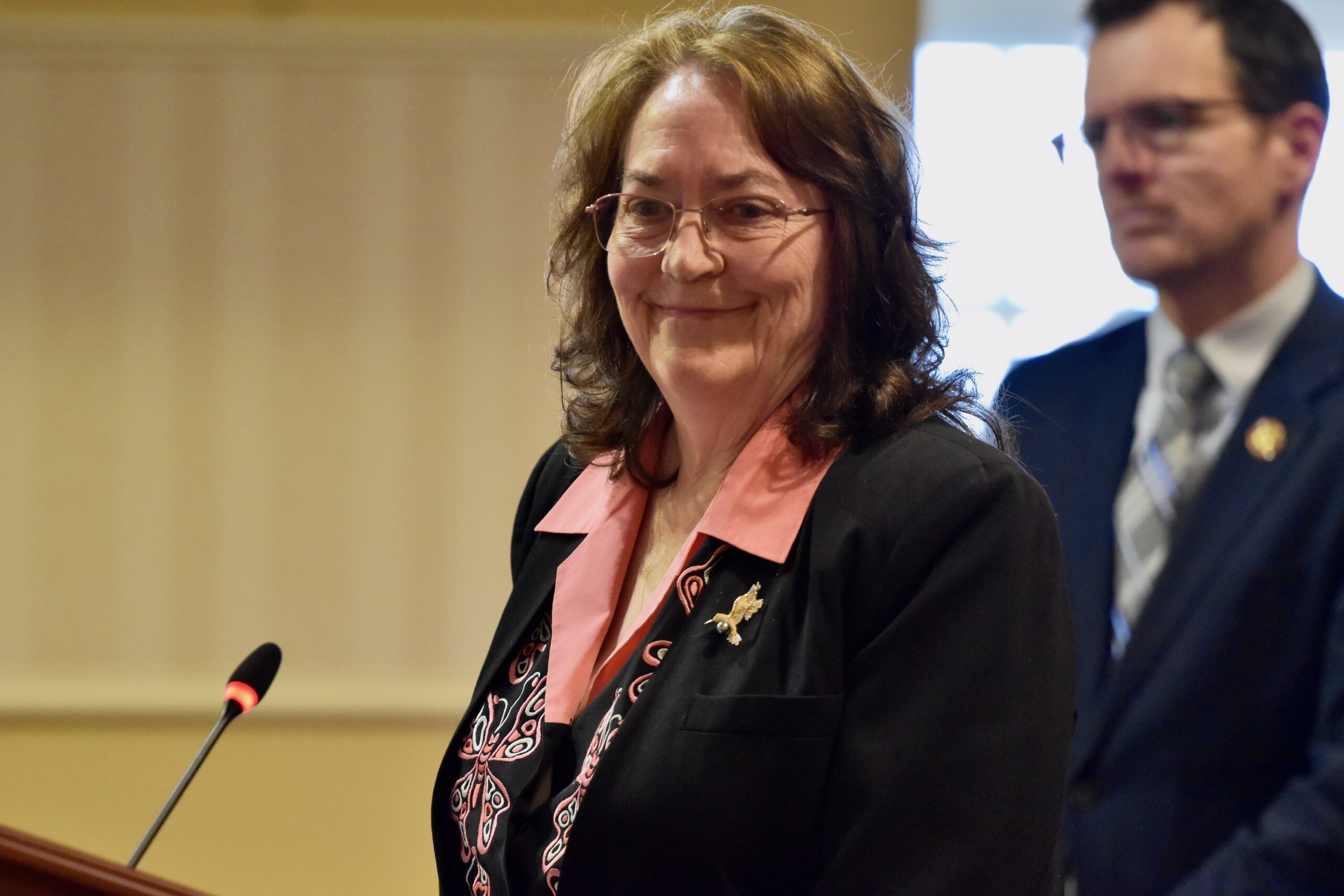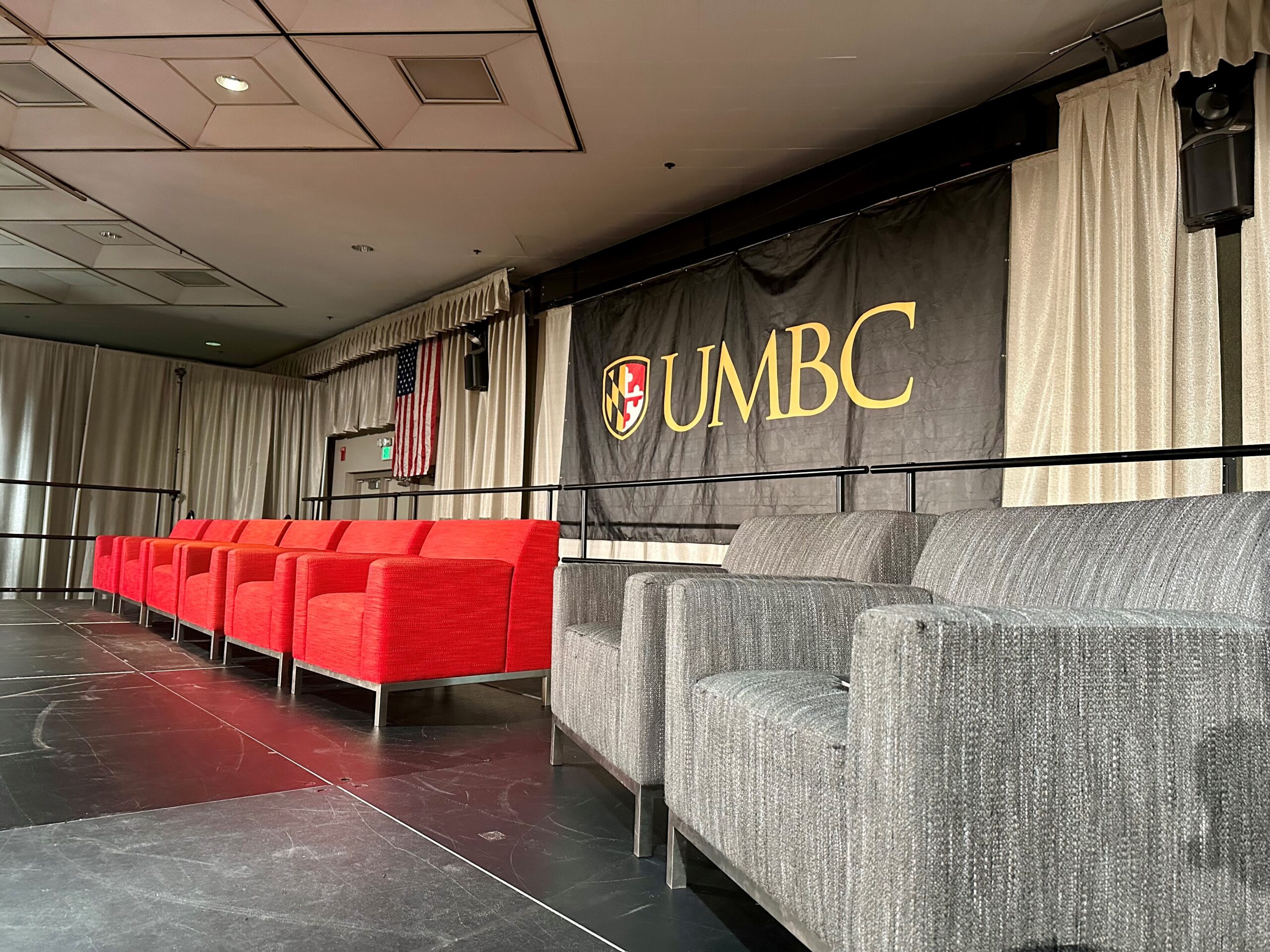Hopkins Police Bill: Marathon Hearings, Financial Sweeteners

Baltimore Mayor Catherine E. Pugh (D) was the speaker at the annual legislative prayer breakfast in Annapolis Friday morning. Whether she silently beseeched the almighty to help pass legislation that would enable Johns Hopkins University to establish a private police force in Baltimore is not known.
Pugh’s appearance in Annapolis coincided with three separate public hearings on the Hopkins legislation Friday: in the Baltimore City House delegation, in the House Judiciary Committee and in the Senate Judicial Proceedings Committee. And while Pugh did not attend any of them, her presence was nevertheless felt.
In fact, beyond the question of whether Hopkins should be able to create its own police department, the controversial legislation – which has inflamed passions among supporters and opponents – is also starting to look a little like a Pugh wish list.
As first outlined in a Baltimore Brew article Friday, the Hopkins measure isn’t just authorizing legislation – it has several sweeteners for a city that’s always determined to maximize its share of state aid every General Assembly session.
The funding was only a small part of the discussion during the three hearings Friday – which saw Hopkins officials, ministers, business leaders, civic activists and students move from venue to venue like a flock of migrating birds.
“We don’t make this request lightly,” Johns Hopkins University President Ronald J. Daniels told the Judiciary Committee. But he – and more than a dozen other bill proponents – said the rising rate of violent crime in Baltimore demands a law enforcement presence near Hopkins’ multiple institutions that the beleaguered Baltimore Police Department cannot provide.
“We have a problem, quite frankly,” Daniels said. “That’s why this current situation is not sustainable.”
Hopkins, which currently has about 1,100 security personnel, wants to hire about 100 police officers over a five-year period. Officials insisted their concerns extend beyond the immediate campus area.
“We have a new opportunity to make Baltimore a safer city and for Johns Hopkins to contribute to that,” said Melissa Hyatt, Hopkins’ vice president for security and a city cop for 20 years.
Daniels and Hyatt were part of an all-star cast of Hopkins officials and consultants who testified in favor of the bill. They were joined by Redonda Miller, president of Johns Hopkins Hospital; Jeanne D. Hitchcock, a former high-ranking city and state official who is now a special adviser to Hopkins’ local government and community affairs office; Thomas Lewis, Hopkins’ vice president for government and community affairs who is a former chief of staff to two Maryland House speakers; and Tony Anderson, a member of the Hopkins Board of Trustees.
Many in the Hopkins cohort touted the institution’s painstaking outreach to neighbors and key city stakeholders; Hitchcock described it as “a very long community engagement process.”
Others sought to make connections with lawmakers and community leaders who may have reservations about a bigger and bolder police presence.
“I am in front of you today as an African-American male who has been racially profiled by the police,” Anderson told lawmakers.
Several people who live and work in the neighborhood also testified in favor of the proposal. Leon Purnell, executive director of the Men and Families Center in East Baltimore, said Hopkins’ desire to create a police force gives the community a rare opportunity to put together a law enforcement agency “modeled to the citizens’ liking.”
“They’d be trained a lot better than the Baltimore City Police Department, probably,” he said of the Hopkins police officers.
But critics of the plan said a new police force means officials are looking at law-and-order solutions to the city’s problems, rather than attacking the root of social ills and aiming to lift up communities.
“Law enforcement-centric approaches to public safety do not work,” said Dayvon Love, policy director of the group Leaders of a Beautiful Struggle. “We need to invest in different approaches.”
Several other speakers – many of them current or former Hopkins students – said they simply didn’t trust the police or want a greater police presence on our near campus.
Some lawmakers were just as critical. Del. Charles E. Sydnor III (D-Baltimore County) – a Hopkins alumnus – asked a panel of business and community leaders near the university’s Homewood campus if they had faith in the Baltimore Police Department. Most said yes – some reluctantly. But Sydnor used their statements to question the wisdom of building a new police force – and the fairness of a well-funded private institution attempting to do so when most other entities couldn’t.
“If all these private entities can afford it, what’s left of the public good?” he wondered.
The legislation is now going to go through a multi-layered process: They aren’t technically local bills, meaning the Baltimore City House and Senate delegations do not have a formal say.
But each delegation will likely take an informal vote on the police proposal, perhaps as early as next week, which could guide how the two judicial committees – and ultimately, the full Senate and House – wind up voting.
Lawmakers will weigh not just the merits of the Hopkins proposal, but the extra funding included in the bill for community and development programs.
It includes $5 million in the upcoming fiscal year for something called the Seed Community Development Anchor Institution Fund, made available to large institutions in Baltimore for community development projects in poverty-stricken areas. That funding would quickly increase to $10 million in the next fiscal year.
For the next four fiscal years, the bill would require the governor to include at least $3.5 million in the state budget for the Baltimore City Children and Youth Fund and at least $1 million a year for the Baltimore City YouthWorks Summer Jobs Program. The bill would also make money available for a library in East Baltimore and would set up a police cadet training program.
As chairmen of their respective Baltimore City delegations, Sen. Antonio L. Hayes (D) and Del. Cheryl Glenn (D) are the sponsors of the Hopkins legislation. Glenn is an enthusiastic supporter; Hayes is undecided.




 Creative Commons Attribution
Creative Commons Attribution